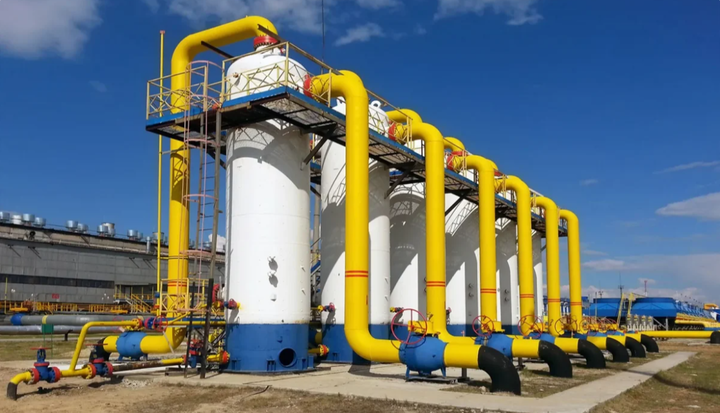Gas Prices in Austria: Predictions for the Coming Months
Body

As Austria continues to navigate the complexities of the global energy market, predicting Gaspreise for the coming months is a crucial concern for both consumers and businesses. With a range of factors at play, from geopolitical tensions to seasonal demand, understanding potential trends can help households and enterprises prepare for fluctuations. This article examines the key drivers influencing gas prices in Austria and provides predictions for the upcoming months.
1. Current State of Gas Prices in Austria
As of mid-2024, gas prices in Austria have seen a significant rise compared to previous years. A combination of global supply disruptions, increased demand, and domestic economic pressures have driven prices higher. The effects of the ongoing energy transition, aimed at reducing reliance on fossil fuels, have also contributed to the current price levels.
2. Global Factors Impacting Future Prices
Several global factors will likely continue to influence Austria’s gas prices in the coming months:
-
Geopolitical Tensions: The conflict in Ukraine and the resulting sanctions on Russian energy exports have had a lasting impact on European gas markets. While Austria has made efforts to diversify its energy sources, the reduction in Russian gas supplies has led to increased reliance on alternative, often more expensive, sources. Any further escalation in geopolitical tensions could result in additional supply constraints and higher prices.
-
OPEC+ Decisions: The Organization of the Petroleum Exporting Countries (OPEC) and its allies, collectively known as OPEC+, play a significant role in global energy markets. Their decisions on oil production levels can indirectly affect natural gas prices, especially in markets where oil and gas prices are closely linked. If OPEC+ continues to restrict oil production, it could lead to higher energy prices across the board, including for natural gas.
-
Global Economic Trends: The global economy is experiencing a period of uncertainty, with inflationary pressures and potential recessions in major economies. These trends could impact global energy demand, leading to fluctuations in gas prices. A slowdown in economic activity could ease demand, potentially stabilizing or even lowering prices, while robust growth could have the opposite effect.
3. Seasonal Variations and Weather Conditions
Seasonal demand and weather conditions are critical factors that will affect gas prices in Austria in the near term:
-
Winter Demand Surge: As Austria heads into the colder months, demand for natural gas is expected to increase significantly due to heating needs. If the winter is particularly harsh, the spike in demand could lead to higher prices, especially if combined with any supply disruptions.
-
Storage Levels: Austria typically increases its gas storage levels ahead of winter to ensure supply security. The adequacy of these storage levels will be a key determinant of price stability. If storage levels are lower than expected or if there is a rush to replenish them, prices could rise.
-
Weather Predictions: Meteorological forecasts play a role in predicting gas prices. If long-term forecasts predict a colder-than-average winter, markets may anticipate higher demand, driving up prices in anticipation.
4. Domestic Economic and Policy Factors
Austria’s domestic economic conditions and energy policies will also influence gas prices in the coming months:
-
Inflation and Consumer Spending: The broader economic environment, including inflation rates and consumer spending patterns, will impact energy prices. High inflation could lead to higher energy costs, while government interventions to support households could mitigate some of the price pressures.
-
Energy Transition and Infrastructure Investments: Austria’s ongoing transition to renewable energy sources and the associated infrastructure investments will continue to play a role in gas pricing. As the country invests in renewable energy, the costs associated with these investments may be passed on to consumers through higher gas prices, at least in the short term.
-
Government Policies and Subsidies: The Austrian government may introduce new policies or subsidies to address rising energy costs. For instance, subsidies for energy-efficient home improvements or financial assistance for low-income households could help mitigate the impact of higher gas prices. Consumers should stay informed about any new government initiatives that could affect their energy bills.
5. Predictions for Gas Prices in Austria
Given the current trends and factors at play, the following predictions can be made for gas prices in Austria over the coming months:
-
Short-Term Increase: In the short term, gas prices are likely to increase as Austria enters the winter season. The combination of higher demand for heating, potential supply constraints, and global market dynamics suggests that prices will rise. Consumers should be prepared for higher energy bills during this period.
-
Potential Mid-Winter Peak: If the winter is particularly cold or if there are unexpected supply disruptions, gas prices could peak in the middle of the season. This would be the result of a sharp increase in demand coupled with potential challenges in securing adequate supplies.
-
Stabilization Post-Winter: After the winter season, gas prices may stabilize or decrease as demand falls. However, this will largely depend on global economic conditions and the state of Austria’s gas storage levels. If storage levels are sufficiently replenished and global supply chains remain intact, prices could ease somewhat.
-
Long-Term Uncertainty: Looking further ahead, the long-term outlook for gas prices in Austria is uncertain. The ongoing energy transition, coupled with geopolitical and economic factors, makes it difficult to predict long-term trends with precision. However, consumers can expect continued volatility, with prices likely to remain sensitive to global events and policy changes.
6. How Consumers Can Prepare
To manage the impact of rising gas prices, Austrian consumers can take several proactive steps:
-
Improve Energy Efficiency: Investing in home insulation, upgrading to energy-efficient appliances, and using smart thermostats can help reduce gas consumption and lower energy bills.
-
Monitor Market Trends: Staying informed about global and domestic energy market trends can help consumers anticipate price changes and plan accordingly.
-
Consider Fixed-Rate Contracts: Some gas suppliers offer fixed-rate contracts that lock in prices for a certain period. While these contracts may not always offer the lowest rates, they can provide price stability during periods of volatility.
-
Explore Alternative Energy Sources: Consumers who are able to invest in alternative energy sources, such as heat pumps or solar panels, can reduce their reliance on natural gas and potentially lower their overall energy costs.










Comments